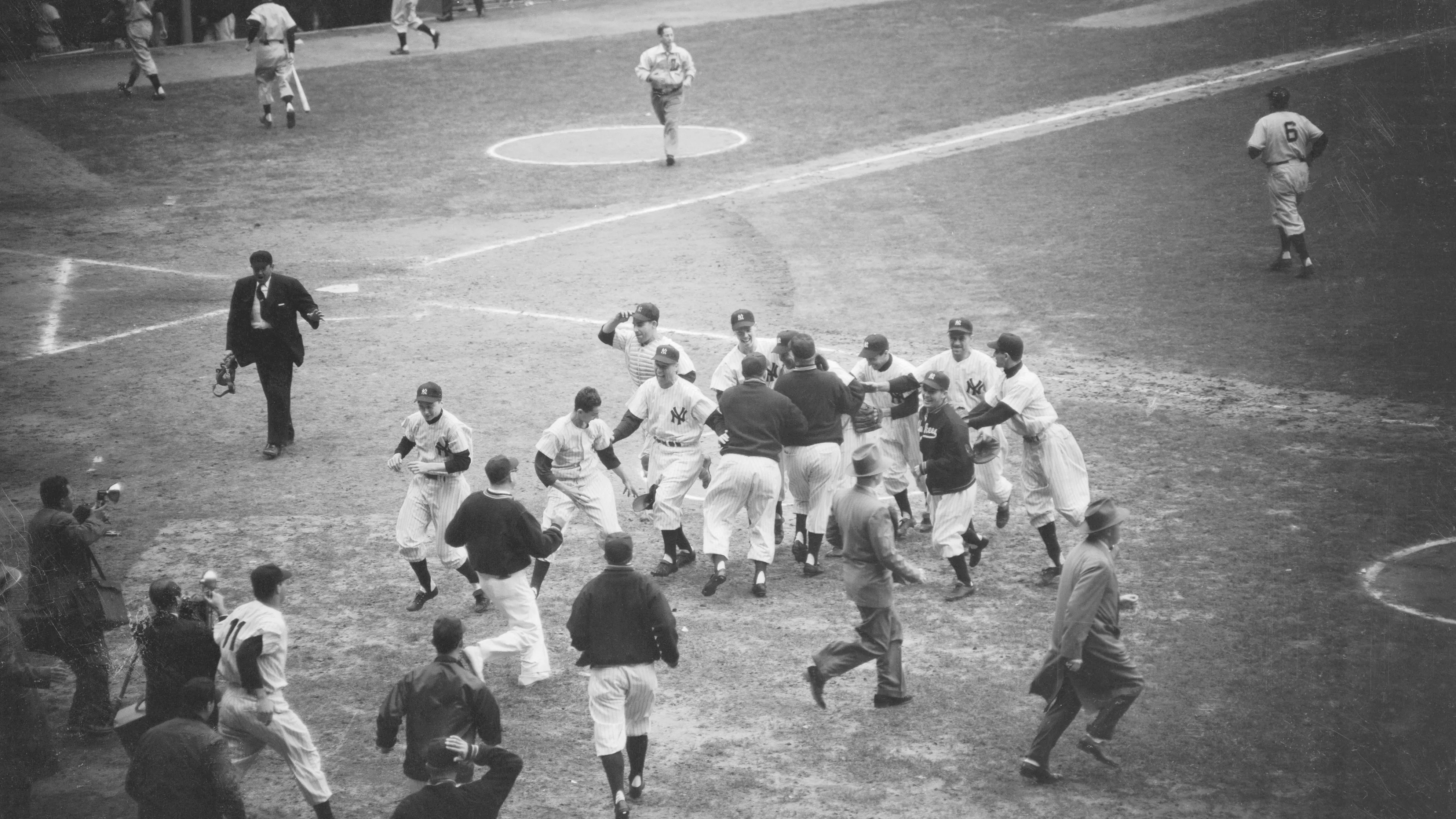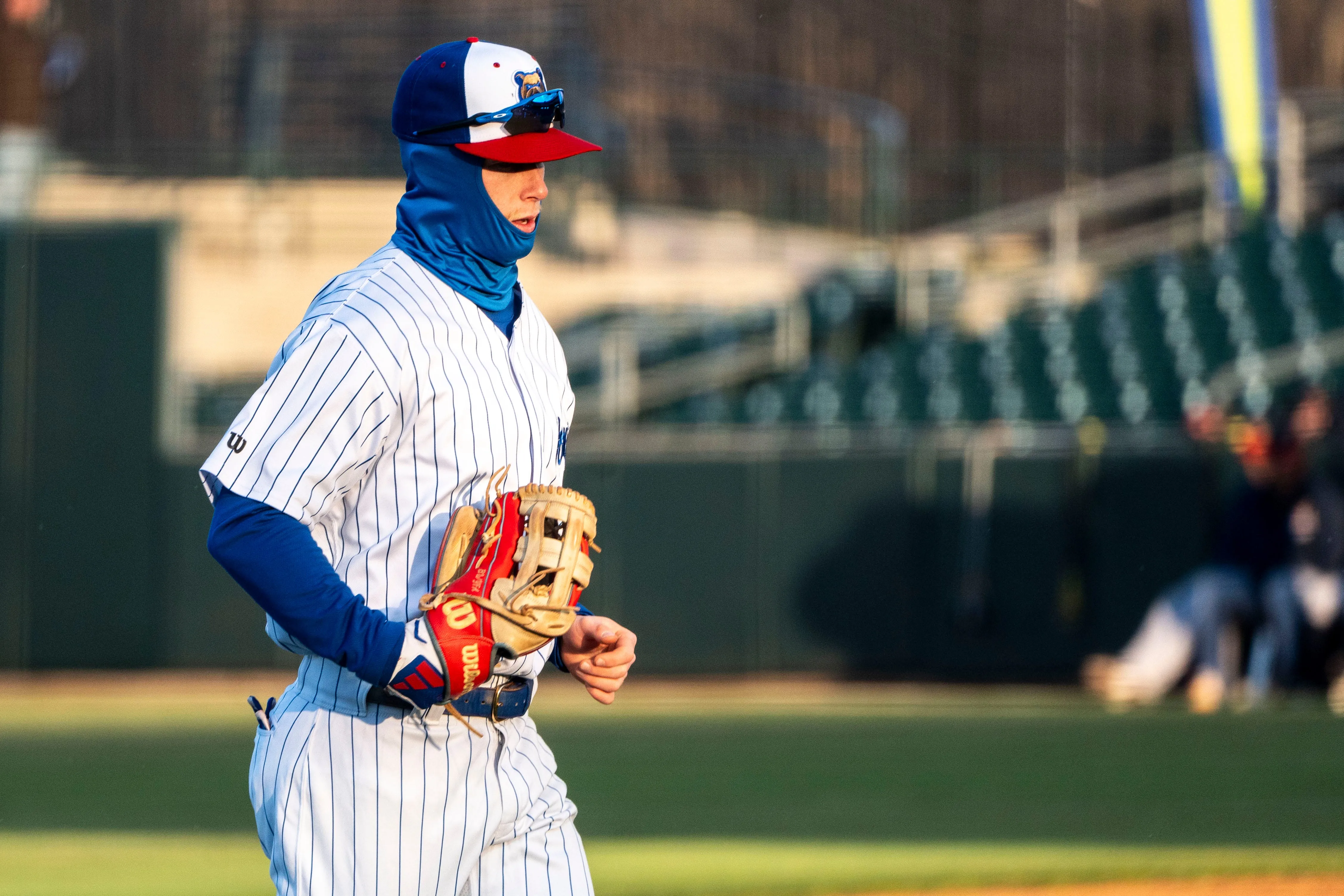Tonight, former Cubs pitcher Mike Montgomery makes his debut with his new team, the Kansas City Royals. The Royals are 24.5 games out of first place, even after they won seven out of their last 10. The Cubs are riding a nice stretch in the second half and expect nothing short of a division title and a championship.
So, why would Montgomery want to leave Chicago and go to a team that is going nowhere?
Because he believes his career can go somewhere the Cubs weren’t taking him.
After throwing the golden pitch that clinched the World Series for the Cubs in 2016, he has filled many roles for the team. He starts, he relieves, he closes, he sets up, he is situational, he waits, he pitches hurt, he does what the team needs to be done to help. And for two years, he appeared in 44 and 38 games respectively, with 14 and 19 starts in those years.
For his entire minor league career, he was a starter and when he broke in, he also started for a while in Seattle. Then in 2016, he went to the pen. But he never lost the confidence that he could be a consistent starter in a major league rotation.
Montgomery just turned 30 years old, a new father, and there is nothing like age and family to provide clarity about how short and temporary a career can be, especially for a pitcher.
He got hurt this year, and probably wondered if being endlessly available contributed to his health issues. It takes a toll to always be ready, especially as you get older. Predictability can be comforting, helpful at times to gaining a rhythm, and a way to take care of your body knowing you have some recovery time built in.
MLB
At 30, the window starts to close slowly but inevitably. His time to establish himself as a starter is yesterday and because he has struggled in a utility role in 2019, he is going the wrong way for his career. He is now getting a label as a lefty that can’t get lefties out, but is not a starter either. The pigeonholing has begun.
He has to fight it, quickly and he can with this bold move. Asking out.
Not from the Cubs, but from how the Cubs are using him in 2019. He has decided that he can’t afford to sit back for the glory of oneness and hope they will take care of him on the other side. By this time in his career, he knows how expendable players are in the grand scheme. That the phone will not ring one day, you will become a memory, and even being a great memory can’t stop you from being inevitably sent home.
He knows that it is not a fair exchange to sacrifice health, opportunity and long-term security to be an insurance policy that may never get claimed. Being in that role is casting a shadow over getting handed the ball every fifth day with a chance to eat up innings and waltz into longer term security for his career and his family. It starts to not add up, especially when you already have a ring in your trophy case.
In 2003, I was traded to the Cubs from the Texas Rangers on July 30th. After recovering from an injury, I hit .389 with a .528 slugging, and a .925 OPS in July. I was on absolute fire. At 32 years old, the turnaround was happening, my one-year free agent contract was about to grow into something more if I got my 200+ at bats in the second half.
While I was rolling along, the Rangers were 44-63 on July 30th, going nowhere, but I was going somewhere up. So I thought.
The phone rang and the general manager of the Rangers, John Hart called to let me know he had traded me to the Cubs. Poof. Just like that. By the time I got to the locker room to get my stuff and say good bye to my Rangers’ teammates, my boxes were packed, my jerseys were gone. Poof.
Sure, the Cubs were in the race, but they were around .500 when I arrived. They had signed a bunch of veteran players whose starting days were behind them. In my case, Kenny Lofton was the guy in centerfield, which turned me into a bench player from an everyday centerfielder instantly. Not because I wasn’t doing the job in Texas, but because the Cubs needed me to do a lesser job. Lofton played almost every day and in the second half of that season, after the trade, I got 51 at bats. In 28 games.
Not a great way to find another job after the season. But I had bought in, Dusty Baker communicated well to me and since I had never been in the playoffs, I kept my mouth shut and followed.
We would go all the way to Game 7 to the NLCS and despite the ending, it was an exhilarating experience. Once in a lifetime. Truly special, but along the ride, no one could guarantee me any of that. Just as easily, the Cubs could have collapsed and I would have been on the bench for a team on the road to rebuilding. And they wouldn’t do it with a 33-year-old veteran centerfielder with a bad hamstring.
I did get my magic hit in the NLCS after sitting on the bench for weeks and when the season ended, Dusty Baker called me personally to express that he wanted me back. I was hoping the silver lining was that some free agent team would see that I could be a clutch performer when it counted. I was happy to get his call, but when all was said and done, he did not have the power to grant me that wish. The phone never rang from Chicago again and I ended up making the Phillies squad in 2004, barely hanging on to my career.
At 33, I was now a caddy to Marlon Byrd and other young outfielders for the entire season. 162 at bats in 87 games. My career was dead in the water, my coaching career seemed to be growing in front of my eyes, against my will.
Of course, I thought about how I could have played better, I could have made a different decision in free agency and stayed in Philly or signed with Tampa. Those were options, but I bet on myself to go to Texas and regain starter status and after I came back from injury, I did just that. But my age was creeping up and the Rangers had little incentive to keep an aging singles hitter on a team that was fighting for last place.
Two years after that trade, the phone stopped ringing and by the time it did ring after the Yankees released me, I had taken it off of the hook anyway. I saw the game passing me by. I wanted to start a family. It still stung to see a couple of players get rewarded with multi-year deals who I later learned were in the Mitchell Report for being associated with PEDs, one of which I helped get back to health while I was in Texas.
So it is a tough question to ask yourself. Would you take the slim chance of winning a World Series as a bench player knowing your career may be shortened 2-3 years? Or would you seek an opportunity to keep playing every day or frequently with a chance to extend your career and have more time to find a way to be on a contender later?
We only get one career, one shot at it. The greater glory matters, the ring is king and I will always long for the ring I never obtained. But I also learned about what can happen after you are that hired gun, or after you stay silent and accept the role the team thinks is best for them when it starts to run counter to what you believe you can do. It can sound selfish, true, but a player watches how other players are treated, not just how they are personally treated. I played with Ryan Howard when he first came up with the Phillies and years later, covering him with ESPN, he came over and said “Now, I know how you felt in 2004 at the end of your career.” Long memories.
Once a season ends where you were marginalized (even when it is because you played poorly), your career may not recover. So with the Cubs trading Montgomery, they were looking out for him in a way, something they did not have to do, and it is a funny game, he could be back one day.
Only time will tell, but as Montgomery expressed. “It’s bittersweet.”
Bitter because he wanted to stay and have it all. Be on a contender and be a starter. That was no longer an option.
Sweet because it was a great chapter in his career, he won, and now he can focus on being the pitcher he believes he can be, not what a team needs him to be.
In baseball, there is nothing like proving someone wrong …
Or proving yourself right.


